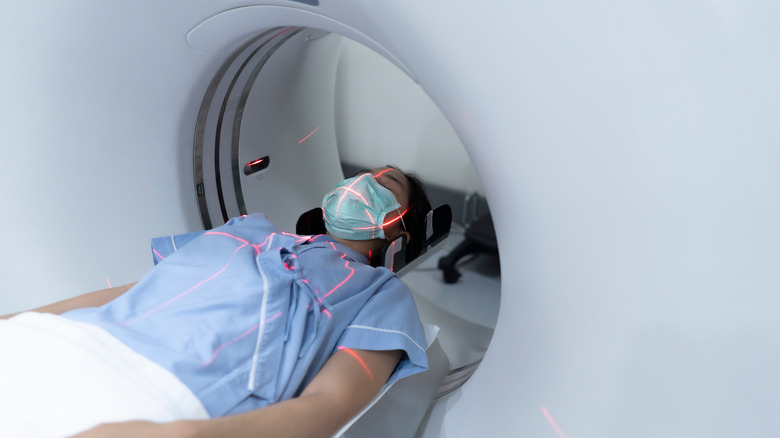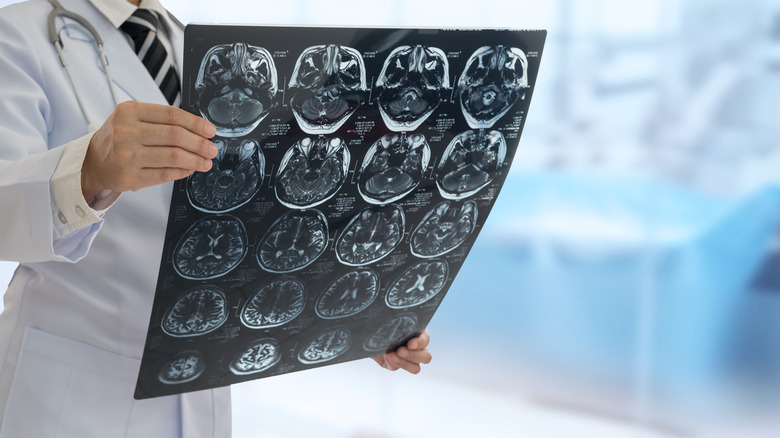What Happens To Your Body When You Get A CT Scan
To get in an accident or develop a life-threatening disease is a scary thought. Fortunately, there's technology that helps doctors get a detailed look at our bodies in order to prevent, diagnose, or treat a number of dangerous conditions. Every year, millions of people get what's known as a computerized tomography (CT) scan of their body (via Harvard Health). Doctors may order a CT scan in order to examine internal injuries, tumors, infections, or cancers (via Mayo Clinic). So what is a CT scan, and what happens when you get one?
CT scans are essentially a series of X-rays that are pieced together to create a 3-D image of your body (via Medical News Today). It may help to think of your body as a layered cake. A CT scan lets doctors look at each individual layer in detail from different angles. When these cross-sectional images are combined, doctors are able to get an overall view of what's going on inside of you. CT scans work by pointing multiple X-ray beams at your body and then moving the beams around to get a thorough picture (via WebMD). The procedure is painless and usually doesn't last very long. However, because CT scans use ionizing radiation to take pictures of your body, there is a small increase in your chances of developing cancer.
The chances of developing cancer from a CT scan are extremely low
The reason that your risk for cancer increases is because the ionizing radiation used in CT scans can damage the DNA in your cells, causing them to replicate uncontrollably. However, the chances of death due to cancer from a CT scan are roughly 1 in 2,000 (via WebMD). For comparison, you're more likely to be killed in a motor vehicle accident, as those odds are documented at around 1 in 107 as of 2019 (via National Safety Council). Overall, the chances of being harmed by a CT scan are extremely low.
It's important to note that if you are pregnant, you should be sure to tell your doctor before getting a CT scan (via Mayo Clinic). The radiation most likely won't be a risk to the fetus, but it's possible you may be able to undergo a different type of exam that will still help the doctor make an accurate diagnosis. That being said, researchers have not observed any negative side effects from the radiation used in CT scans. If you have questions about whether another diagnostic tool could be used, discuss all options with your doctor in order to make an informed decision you feel most comfortable with.


